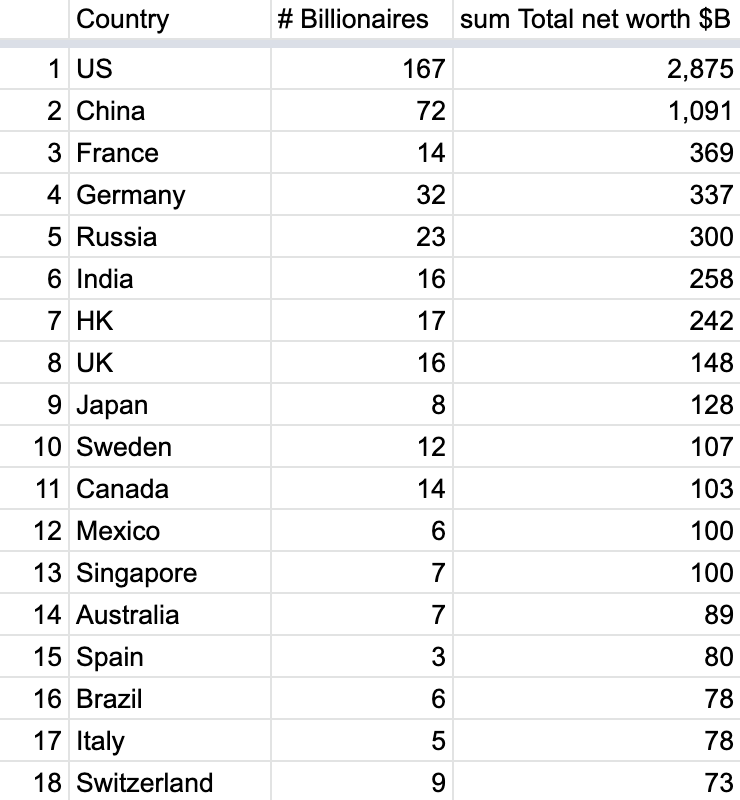What can we learn from the Billionaires Index?
Last week, Tesla CEO Elon Musk became the world’s third-richest person with $110 billion. Skimming through the Bloomberg Billionaires Index, I was surprised by the high number of French people and decided to analyze the index. Here are some stats based on the 500 richest people ranked:
The US, China, and France are the countries were billionaires accumulated the largest wealth. Then come Germany, Russia, and India.
But if you take into account population, China, India, and Russia disappear from the top 10. Hong Kong, Singapore, Sweden, the US, and Switzerland make it to the top, and France is #8.

Given their GDP, I expected Japan, Italy, South Korea, and Spain to have as many billionaires as Germany, France, Canada, and Australia. And yet, they lag behind by all KPIs. Is it because these countries are more equalitarian? If wealth is better distributed in the country, then there may be fewer billionaires (or not as rich).
In each country, the most common industry among billionaires tends to reflect the strengths of the local economy (and its clichés!), for instance:
Real estate in Hong Kong,
Luxury (Arnault / LVMH, Bettencourt / L'Oréal, Pinault / Kerin, Wertheimer / Chanel), alcohol (Cayard / La Martiniquaise), and… cheese (Besnier / Lactalis) in France,
Industry in Germany,
Healthcare in Switzerland,
Energy & conglomerates of oligarchs in Russia,
Technology in China,
Technology & Finance in the US.
(And Media & Telecom in Canada, but why?)
Other things to look at:
Average age of billionaires by country
Average wealth of billionaires by country
Family names (there are 4 Dassaults in the top 500…)
In each country, what’s the % of wealth that is self-made rather than inherited?
What else?
I wonder how much you can guess about a country just by analyzing this list. (Or how much my confirmation bias can make me see what I want to see in each figure…) What do you think?
Antoine


